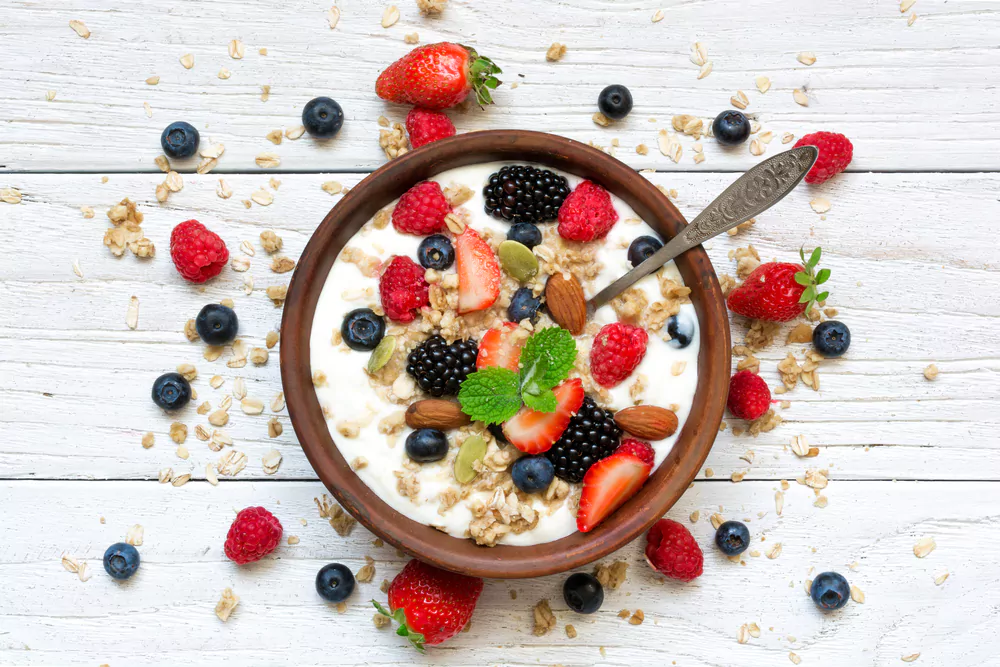10 Reasons Why Breakfast is Important Meal Of The Day

Breakfast: the meal that breaks the fast of the previous night. Some rush past it, others skip it altogether, while the rest appreciate the benefits and savour its richness. But why is breakfast considered so crucial? Choosing balanced, nutrient-dense breakfast options can have significant effects on your well-being and health. Think of foods rich in protein, complex carbs, and fiber that will keep you satiated until your next meal. If you’re pressed for time, quick breakfast options such as a smoothie, overnight oats, or a hard-boiled egg can be healthy choices.
This blog post delves into the top 10 reasons why breakfast is important, illustrating how it significantly impacts our health, well-being, and overall productivity.
- The Importance of Breakfast
- Fuels Your Body to Start the Day
- Enhances Brain Function
- Helps Maintain a Healthy Weight
- Provides Essential Nutrients
- Enhances Mood and Reduces Stress
- Encourages Better Eating Habits
- Reduces Risk of Heart Disease
- Boosts Physical Performance
- Encourages Better Metabolic Response
- Promotes Long-term Health
- Wrapping up
1 The Importance of Breakfast
Breakfast, often touted as the ‘most important meal of the day,’ holds an indispensable place in our daily routines. It breaks the overnight fasting period, replenishing the supply of glucose to boost your energy levels and alertness, while also providing other essential nutrients required for good health. Regular breakfast consumption has been linked with improved cognitive functions, leading to better concentration and productivity. It’s also a critical player in weight management, as it kickstarts the metabolism and can reduce hunger throughout the day.
Furthermore, the nutritional wealth of typical breakfast foods offer an opportunity to consume substances like fiber, vitamins, and minerals that contribute to a well-rounded and balanced diet. Hence, breakfast’s role is not just to silence the morning hunger pangs but to provide your body with the right nutrients for a successful day, leading to long-term health benefits. Let us find our more reasons why breakfast is the most important meal of the day.
2 Fuels Your Body to Start the Day
After sleeping for several hours, your body needs energy to start a new day. Breakfast replenishes the glucose stores that power your muscles and brain. Consuming a healthy breakfast provides immediate energy and helps stabilize blood sugar levels, thereby preventing mid-morning crashes. Think of your body as a car, and breakfast as the initial fuel that gets the engine running smoothly.
3 Enhances Brain Function

Multiple research studies have shown that eating breakfast improves cognitive function. Nutrients consumed during breakfast, like whole grains, fruits, and dairy, aid in enhancing memory, attention, and processing speed. For children and adolescents, breakfast becomes particularly crucial, with evidence demonstrating better academic performance among students who eat breakfast regularly.
4 Helps Maintain a Healthy Weight
Eating breakfast can assist in maintaining a healthy weight. Studies suggest that breakfast eaters are less likely to be obese or overweight than those who skip it. This can be attributed to breakfast helping manage hunger throughout the day, leading to less snacking and overeating. Moreover, breakfast can kickstart your metabolism, helping you burn more calories throughout the day.
5 Provides Essential Nutrients
Breakfast can be an excellent opportunity to get a considerable amount of your daily recommended nutrients. Foods typically consumed at breakfast, like whole grains, fruits, dairy products, and lean proteins, are rich in vital vitamins, minerals, and dietary fiber. Skipping breakfast may lead to missed nutritional opportunities, which may be hard to make up for during the rest of the day.
6 Enhances Mood and Reduces Stress
Eating breakfast can help lift your mood. The connection between food and mood is undeniable, and a nutritious breakfast can offer a positive start to the day. In contrast, skipping breakfast can lead to irritability, fatigue, and a heightened stress response. Certain breakfast foods, such as those rich in complex carbohydrates and lean proteins, can even help regulate mood throughout the day.
7 Encourages Better Eating Habits

Those who eat breakfast tend to have better overall eating habits. Breakfast can help regulate the hunger hormone ghrelin, preventing overeating later in the day. A pattern of regular eating that includes a healthy breakfast can also reduce impulsive snacking and promote more healthful food choices throughout the day.
8 Reduces Risk of Heart Disease
Several studies have suggested a correlation between eating breakfast and a reduced risk of heart disease. Breakfast eaters, particularly those who opt for high-fiber, nutrient-dense foods, tend to have healthier cholesterol levels and blood pressure readings. They also have a lower risk of developing diabetes, a known risk factor for heart disease.
9 Boosts Physical Performance
For those engaged in physical activities or sports, a healthy breakfast is essential. It provides the energy needed for increased physical performance and muscle recovery. Also, eating breakfast can enhance coordination and endurance, proving particularly beneficial for morning workouts.
10 Encourages Better Metabolic Response

Breakfast consumption positively influences metabolic rate. Eating breakfast kickstarts your metabolism and keeps it active throughout the day. When you skip breakfast, your body goes into a fasting mode, leading to a slower metabolism that stores, rather than burns, calories. This metabolic response can contribute to weight gain and other health issues.
11 Promotes Long-term Health
Lastly, eating breakfast can promote long-term health. A consistent routine of breakfast consumption has been linked to a lower risk of chronic diseases like diabetes, heart disease, and obesity. It can also help improve bone health, immune function, and longevity.
12 Wrapping up
Breakfast, without a doubt, is the most important meal of the day. It sets the stage for your body’s energy levels, metabolic function, cognitive ability, and overall health. Moreover, it’s an excellent opportunity to kick start your day with a boost of nutrients.
Remember, the key to a good breakfast lies in variety and balance. By incorporating different types of foods into your breakfast, you can ensure that you’re getting a wide range of nutrients. And most importantly, make it a habit—consistent, healthy breakfast consumption can have long-term benefits for your health and well-being.
So, the next time you think about skipping breakfast, remember its many benefits. Also, check out our blog on low-calorie healthy Indian breakfast ideas. Your body and mind will thank you.
Community Q&A
About This Article
Hardik Jethva is an experienced author of the BestCheck family. Working from scratch, he has developed an amazing interest in testing and writing about different products in a transparent manner. His writing skills got more audience for BestCheck. Apart from his professional life, Hardik has his eyes on travelling, meditation, eating healthy food, socializing with people, and car rides.
This article has been viewed 478 times.



